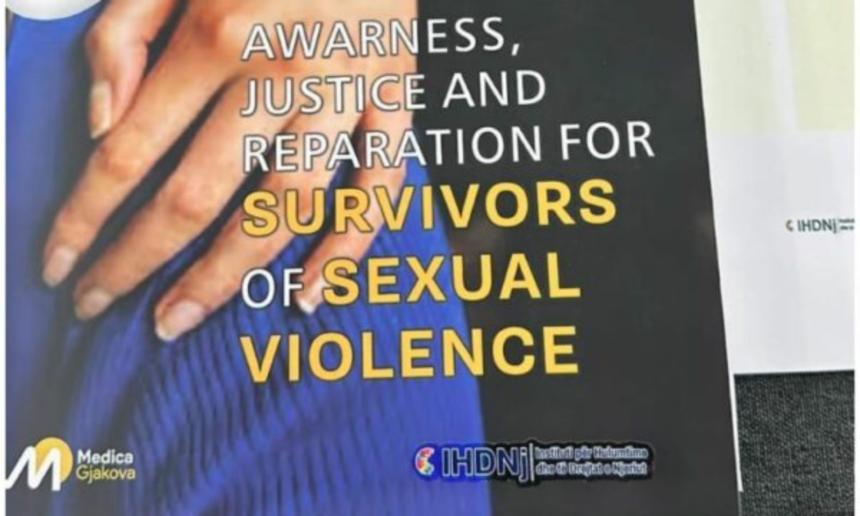Medica Gjakova and the Institute for Human Rights and Research (IHDNJ) have launched a new initiative aimed at providing comprehensive support to survivors of sexual violence during the Kosovo conflict. The initiative seeks to assist survivors who continue to face the psychological, health-related, and social-economic consequences of the violence they endured during the 1998-1999 conflict.
Survivors of sexual violence during the Kosovo conflict have faced numerous challenges, including severe trauma, health problems, and social exclusion. One such survivor, “Diella” (a name changed for privacy), shared her experience of the trauma she endured during that time, stating, “I often feel isolated and ashamed, fearing judgment from my community and family. The shame silenced me and prevented me from seeking the help and support I needed.”
She also explained how the process of reporting their experiences and seeking justice has been fraught with obstacles. The legal system often fails to provide the necessary support and sensitivity for survivors. Recounting their experiences is deeply traumatic.
To date, only 1,650 out of approximately 20,000 survivors have been granted official recognition as survivors of sexual violence connected to the Kosovo conflict. The project “Raising Awareness, Justice, and Reparation for Survivors of Sexual Violence” will run for 15 months, aiming to provide support for 40 survivors, including their family members.
The project is supported by the European Union through the United Nations Development Programme (UNDP) and aims to assist through legal processes for compensation and justice, as well as through support groups for trauma treatment, economic empowerment, and awareness-building.
Psychosocial support plays a crucial role for sexual violence survivors. Diella highlighted the importance of the assistance she received from Medica Gjakova, stating that the organization has been a lifeline for many survivors, with their approach to support making a significant difference in their lives. “Through their counseling, legal assistance, and economic empowerment programs, we have started to rebuild our lives. Here, we find understanding and solidarity, knowing we are not alone in our struggles,” Diella shared.
Medica Gjakova has provided various services to survivors, such as psychosocial counseling, legal aid, and financial assistance. Through these services, survivors have the opportunity to rebuild their lives and find help in coping with the aftermath of the violence.
Despite the recognition of some survivors, many still hesitate to come forward due to fear of stigma and social exclusion. Another survivor, “Genci” (name changed for privacy), shared how his life was deeply affected by the violence he experienced during the 1998-1999 conflict. “I am not the person I once was. I live with constant fear that others might find out what happened to me, and the shame linked to being a survivor of sexual violence weighs heavily on me. These feelings of fear and shame create doubts about my ability to move forward and live a normal life,” Genci said.
Genci found encouragement to seek psychosocial help from his wife, who encouraged him to reach out to Medica Gjakova, which, according to him, changed his life. “They provided me with a safe space where I could speak about my experiences without fear. This trust has helped me begin my healing process,” he shared.
In 2018, the Kosovo Assembly passed a law recognizing survivors of sexual violence and providing them with the opportunity for compensation. This process has continued, but many survivors still have not had the chance to be officially recognized due to fear and social exclusion. However, projects like the one from Medica Gjakova are an important step toward providing support and justice for survivors.
During the 1998-1999 conflict, around 20,000 people in Kosovo experienced sexual violence. After years of silence and marginalization, the country has made progress in recognizing and supporting survivors, but much work remains. Medica Gjakova continues to play a key role in the support and rehabilitation of survivors, offering them the opportunity to rebuild their lives and seek justice.
For more information about the project and the work of Medica Gjakova, visit their official website at medicagjakova.org.







